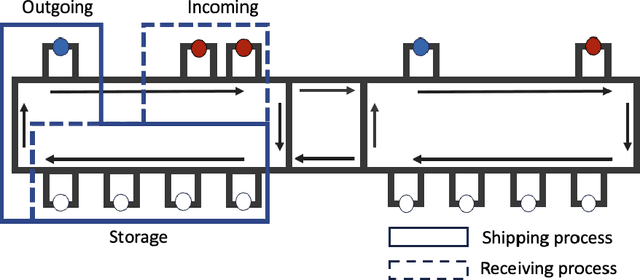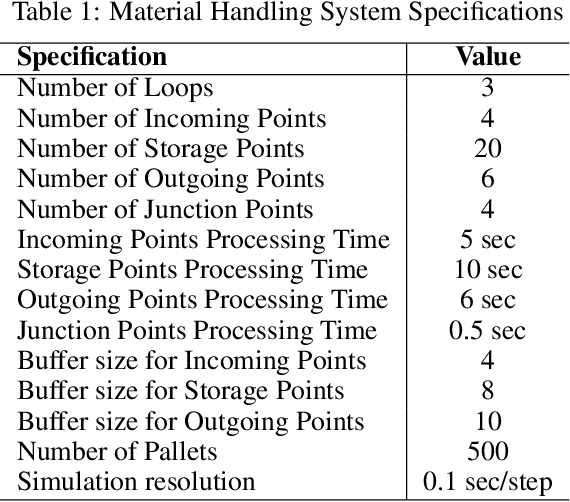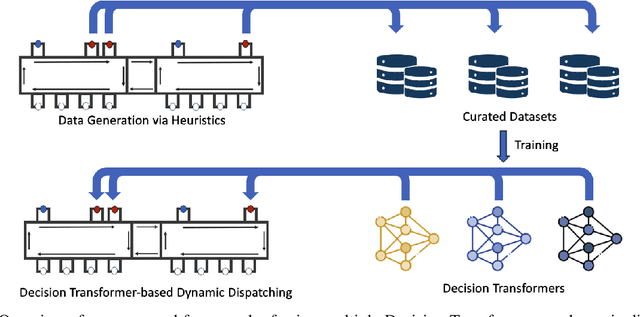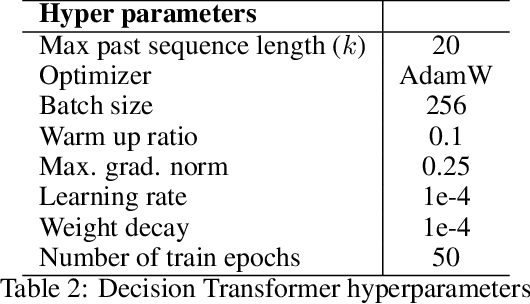Takaharu Matsui
Multi-Agent Decision Transformers for Dynamic Dispatching in Material Handling Systems Leveraging Enterprise Big Data
Nov 04, 2024



Abstract:Dynamic dispatching rules that allocate resources to tasks in real-time play a critical role in ensuring efficient operations of many automated material handling systems across industries. Traditionally, the dispatching rules deployed are typically the result of manually crafted heuristics based on domain experts' knowledge. Generating these rules is time-consuming and often sub-optimal. As enterprises increasingly accumulate vast amounts of operational data, there is significant potential to leverage this big data to enhance the performance of automated systems. One promising approach is to use Decision Transformers, which can be trained on existing enterprise data to learn better dynamic dispatching rules for improving system throughput. In this work, we study the application of Decision Transformers as dynamic dispatching policies within an actual multi-agent material handling system and identify scenarios where enterprises can effectively leverage Decision Transformers on existing big data to gain business value. Our empirical results demonstrate that Decision Transformers can improve the material handling system's throughput by a considerable amount when the heuristic originally used in the enterprise data exhibits moderate performance and involves no randomness. When the original heuristic has strong performance, Decision Transformers can still improve the throughput but with a smaller improvement margin. However, when the original heuristics contain an element of randomness or when the performance of the dataset is below a certain threshold, Decision Transformers fail to outperform the original heuristic. These results highlight both the potential and limitations of Decision Transformers as dispatching policies for automated industrial material handling systems.
 Add to Chrome
Add to Chrome Add to Firefox
Add to Firefox Add to Edge
Add to Edge